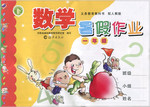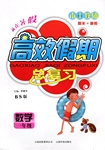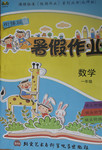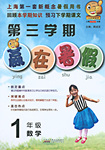题目内容
When an egg breaks from outside, a life ends. When an Egg breaks from inside, a life begins.
All life’s circumstances can be seen in an egg where in the soft yolk (蛋黄) inside is our _____ and the hard shell outside is the barrier. When the barrier breaks from outside, our desire is crushed, but when it breaks from inside, we __ a new skill, a new habit and a new life.
I was 22 years old. I did not where the kitchen was in my house, since I had __ gone into the kitchen before. All of a sudden, I had to move to America to pursue my master’s degree. That is when it _____ me that I had to learn to cook a proper meal in order to _____ . My desire to cook began to _____ , and the yolk began to stir.
The first time I made _____ , it came out like white glue. Within a month of experimenting with different recipes, I ______ the art of making Chinese fried rice and north Indian curry. This breaking of the eggshell from _ gave me yet another skill for life, ____ . Now that I look back, maybe my wife agreed to marry me for this ____ alone.
It is easy to break an egg from outside, but it is __ to break it from inside. What is even more difficult is to ____ you from outside and break the egg from inside. That is where the role of a teacher, a mentor or a coach comes in.
As a father, I took it as my responsibility to __ my son cycling and swimming. In this case, the yolk was the untapped potential of my son and the barrier was his fear of losing _ . It took months of patience and coaching to help him _ his fear. It was an uphill task to keep him motivated through failures. _ , I was glad and relieved when he learned both these essential skills.
The important lesson here is that the egg will be __ no matter what. Success, when the egg breaks from inside, is more about what you overcome than what you achieve.
Life always throws up _ . I urge you all learn the instrument that you always wanted to play but have not played so far. As the saying goes, there is never a lock without a key, never a problem without a solution. Persist, believe in yourself and allow your yolk to break through to a new soul, a new you.
1.A. concern B. desire C. weakness D. resource
2.A. lose B. change C. learn D. expect
3.A. know B. find C. forget D. question
4.A. often B. never C. sometimes D. ever
5.A. reminded B. occurred C. stuck D. hit
6.A. survive B. compete C. continue D. settle
7.A. turn around B. get across C. take shape D. take part
8.A. tea B. rice C. yogurt D. porridge
9.A. recognized B. appreciated C. introduced D. mastered
10.A. Inside B. outside C. sideways D. around
11.A. learning B. cooking C. cycling D. adapting
12.A. courage B. attempt C. skill D. hobby
13.A. funny B. simple C. boring D. difficult
14.A. prevent B. influence C. agree D. warn
15.A. accompany B. keep C. teach D. require
16.A. Balance B. patience C. courage D. freedom
17.A. understand B. discover C. reflect D. overcome
18.A. Meanwhile B. Finally C. Besides D. Therefore
19.A. Broken B. cooked C. lost D. kept
20.A. ideas B. messages C. surprises D. challenges
1.B
2.C
3.A
4.B
5.D
6.A
7.C
8.B
9.D
10.A
11.B
12.C
13.D
14.B
15.C
16.A
17.D
18.B
19.A
20.D
【解析】
试题分析:鸡蛋从内而外地破和从外而内地破是截然不同的。人的成长又何尝不是呢?
1.B考查名词辨析。A. concern“关心;忧虑”; B. desire“渴望,欲望”;C. weakness “弱点”; D. resource“资源”,根据该空后“and the hard shell outside is the barrier. When the barrier breaks from outside, our desire is crushed, ”(而坚硬的外壳是障碍。当障碍是因外力而破时,我们的‘愿望/渴望’也就破碎了。)由其相互间的对应关系,不难发现,鸡蛋内部的蛋黄是我们的“渴望、愿望”,故正确答案为B.
2.C考查动词辨析。A. lose“丢掉,失去”; B. change “改变”; C. learn“学习”; D. expect“预料;期待,盼望”,该句句意:“但是当鸡蛋是由内而破的话(自身挣脱了枷锁),那么我们就‘学到了’新的技能、新的习惯和新的生活方式。”,故正确答案为C.
3.A考查动词辨析。A. know“知道”; B. find “找到”; C. forget“忘记”; D. question“询问;怀疑”,根据下文“ I had to learn to cook a proper meal(我不得不学着做饭)”可知,该句意为:“我不‘知道’我家的厨房在哪儿。”,故正确答案为A.
4.B考查副词辨析。A. often“经常”; B. never“从没”; C. sometimes“有时”; D. ever“曾经”,所以该原因状语从句句意:“因为我之前‘从没’进过厨房。”,故正确答案为B.
5.D考查动词辨析。A. reminded“提醒,使记起”; B. occurred“出现”; C. stuck “刺,插入;粘住”; D.hit“打;击中;突然想起”,且sth hit sb:某人突然想起某事。该句句意:“就在那时我突然有了个想法:我得学做饭。”,句中It为表语从句的形式主语that从句为真实主语,该题的正确答案为D.
6.A考查动词辨析。 A. survive“活下来;幸存”; B. compete“比赛,竞争”; C. continue“继续”; D.settle“定居;解决”,根据语境可知,我到美国攻读硕士学位,而就是那时我不得不学着做饭,显然是为了基本的生活,为了活下来。故正确答案为A.
7.C考查动词短语辨析。 A. turn around“转身;(生意或经济)好转”; B. get across“通过;使…被理解”; C. take shape“(开始)成形;形成”; D. take part“参与,参加”,该句句意:“我做饭的渴望开始‘成形’。”,故正确答案为C.
8.B考查名词辨析。 A. tea“茶叶”; B. rice“米饭”; C. yogurt“酸奶酪”; D. porridge“粥,稀饭”,该处是我第一次做的食物,应该是做得不好,文中提到最后做出来了像“white glue”(白色的胶水),根据这两点,可推知更可能是我第一次做“米饭”。故正确答案为B.
9.D考查动词辨析。A. recognized“认出”; B. appreciated“感激;欣赏”; C. introduced“介绍”; D. mastered“控制;精通”,该句句意:“在一个月内不断地尝试不同的食谱,我‘掌握了’中国炒米和北印度咖喱饭的制作艺术。”,故正确答案为D.
10.A考查副词辨析。 A. inside“内部”; B. outside“外面”; C. sideways“从旁边”; D. around“周围,到处”,该处所讲得是我内心的渴望学习做饭,然后在一个月内掌握了中国的炒米和北印度的咖喱饭,根据上文的类比,可知这相当于鸡蛋从内向外的变化,故该空正确答案为A.
11.B 考查动名词辨析。 A. learning“学习”; B. cooking“做饭”; C. cycling“骑自行车”; D. adapting“适应;改编”,该处所选动名词和“another skill for life”为同位语,根据上文可知,我所学的一个生活技能就是“做饭”。故正确答案为B.
12.C考查动名词辨析。A. courage“勇气”; B. attempt“尝试;企图”; C. skill“技巧;技能”; D. hobby“爱好;嗜好”,根据上文作者所叙述部分对于“做饭”所给出的界定(例如:“another skill for life”)可知,“做饭”在文中指“一个技能”,所以该句句意:“现在我回过头看看,可能我的妻子同意嫁给我就是因为我的这一‘技能’。”,故正确答案为C.
13.D考查形容词辨析。 A. funny“好笑的;有趣的”; B. simple“简单的,简明的”; C. boring“枯燥的”; D. difficult“困难的,艰难的”,该题做题的关键在于其并列分句中的“easy”和分句的并列连词“but”,由此可知该分句句意为:“鸡蛋从里而破却是‘困难的’。”,故正确答案为D.
14.B考查动词辨析。 A. prevent “阻止,防止”; B. influence“影响”; C. agree“同意”;D. warn“警告”,根据下一句“That is where the role of a teacher, a mentor or a coach comes in.”(这就是一个老师、导师或教练的用武之处。),故该句句意:“更困难的是既有外部的因素‘影响’,鸡蛋又由内而外地破。”,故正确答案为B.
15.C考查动词辨析。 A. accompany“陪同;伴随;伴奏”; B. keep“保持”; C. teach“教”; D. require“需要;要求,命令”,该句句意:“作为一个父亲,我认为‘教’我的儿子骑车和游泳是我的责任。”,故正确答案为C.
16.A考查名词辨析。A. balance“平衡”; B. patience“耐性”; C. courage“勇气”; D. freedom“自由”,该句句意:“在这种情况下,蛋黄是我儿子尚未开发的潜力而障碍是他对于失去‘平衡’的恐惧/害怕。”,根据上文提到,此时我是在教儿子学骑车和游泳,所以孩子的恐惧应是怕失去“平衡”,故正确答案为A.
17.D考查动词辨析。A. understand“理解”; B. discover“发现”; C. reflect“映出;反射;反映”; D. overcome“克服”,该句句意:“几个月的耐心训练帮助我的儿子‘克服了’他的恐惧。”根据宾语“his fear”,可知该空正确答案为D.
18.B考查副词辨析。A. Meanwhile“与此同时”; B. Finally “最终”; C. Besides “此外”; D. Therefore“所以”,该句所讲“当儿子学到了这两项基本技能的时候,我感到高兴和宽慰。”是这件事的最终结果,故该处应选用副词Finally,即正确答案为B.
19.A考查动词辨析。A. broken“打破”; B. cooked“煮”; C. lost“失去”; D. kept
“保持”,整篇文章将事情类比的是鸡蛋(从内/从外)的破裂,故该句意为:“无论如何,鸡蛋都会‘破’的。”,故正确答案为A.
20.D考查名词辨析。A. ideas“主意,想法”; B. messages“信息”; C. surprises“吃惊”; D. challenges“挑战”,根据下文讲到的“没有解决不了的问题。”,所以该句句意:“生活总是抛出些‘挑战’。”,故正确答案为D.
考点:夹叙夹议文

 暑假作业海燕出版社系列答案
暑假作业海燕出版社系列答案 本土教辅赢在暑假高效假期总复习云南科技出版社系列答案
本土教辅赢在暑假高效假期总复习云南科技出版社系列答案 暑假作业北京艺术与科学电子出版社系列答案
暑假作业北京艺术与科学电子出版社系列答案 第三学期赢在暑假系列答案
第三学期赢在暑假系列答案